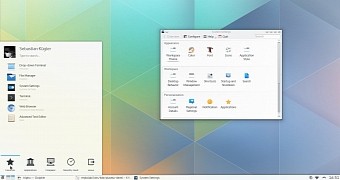KDE has had the great pleasure of announcing the release and general availability of KDE Frameworks 5.17.0, a set of add-on libraries for the Qt5 GUI (Graphical User Interface) toolkit.
Engineered for the recently released KDE Plasma 5.5 desktop environment, which is the last maintenance release in the KDE Plasma 5.4 series, the KDE Frameworks project has been updated to version 5.17.0 with dozens of changes.
"KDE today announces the release of KDE Frameworks 5.17.0. This release is part of a series of planned monthly releases making improvements available to developers in a quick and predictable manner," reads the announcement.
According to the official release schedule for the project, KDE Frameworks 5.17.0 is the last maintenance build for 2015 and also the last one mentioned. However, new releases will be published at the end of the first week of each month.
Therefore, the development cycle of KDE Frameworks 5 will continue in the first week of January with version 5.18.0. The KDE Frameworks 5.19.0 build will be available in the first week of February 2016, and KDE Frameworks 5.20.0 should arrive in March.
What's new in KDE Frameworks 5.17.0
KDE Frameworks 5.17.0 is yet another bugfix release that addresses numerous issues with the included add-on libraries and KDE applications, reported by users or discovered by the KDE developers during the month of November 2015.
Among the things that have been improved in KDE Frameworks 5.17.0, we can mention Plasma Framework, Breeze Icons, Baloo, KActivities, KArchive, KCoreAddons, KDeclarative, KDED, KFileMetaData, KIO, KItemModels, KNewStuff, and KTextEditor.
Additionally, the Extra CMake Modules, KDE Doxygen Tools, Framework Integration, KDELibs 4 Support, KWallet Framework, KWidgetsAddons, and KXMLGUI have received assorted improvements and bugfixes.
KDE Frameworks 5.17.0 is now available for download in the default software repositories of various bleeding-edge GNU/Linux operating systems, such as Arch Linux. All users must upgrade as soon as possible.

 14 DAY TRIAL //
14 DAY TRIAL //